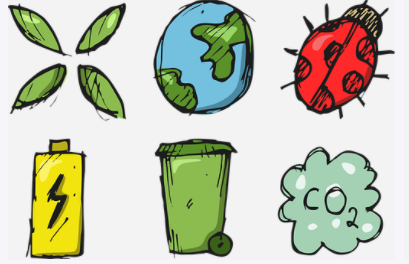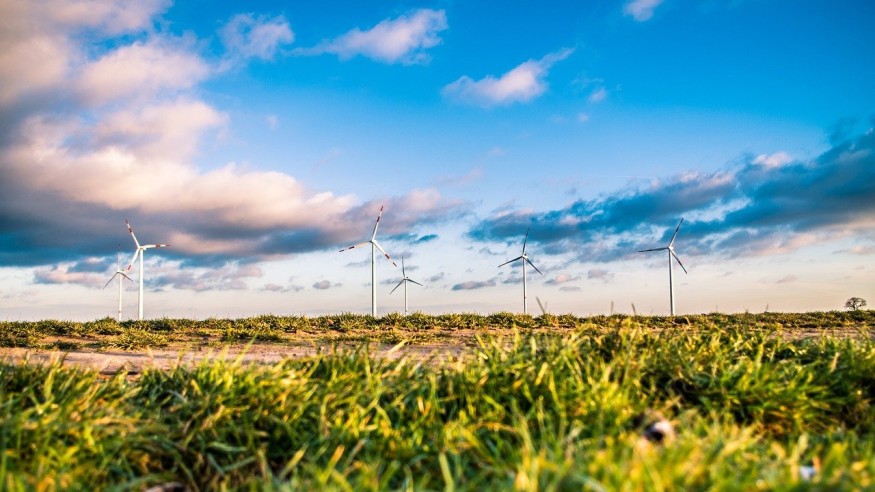Following a visit to Shanghai by US environment envoy John Kerry, the two sides said in a joint statement on Saturday that they are "committed to collaborating" on the urgent topic of climate change.

"The United States and China are committed to working together and with other countries to resolve the climate crisis, which requires the gravity and urgency that it demands," Kerry and China's special envoy for climate change, Xie Zhenhua, said in a joint statement.
Cooperation Despite Tensions

Kerry, the former US secretary of state, was the first official from President Joe Biden's administration to visit China, signaling that the two sides could work closely on the global threat amid high tensions on several fronts.
According to the release, both countries "look forward" to the meeting, but it is unclear if Xi will participate.
Kerry, who is currently in South Korea, told reporters on Sunday, "We very much hope he will participate."
"Of course, each nation will make its own decisions," he said, adding, "We're not trying to impose anything on anyone." We're looking for a way to work together."
Kerry said China has about half of the world's coal power and that he "talked a lot" with officials in Shanghai about it.
"I am not pointing fingers," Kerry said. "We had too much gas, other countries had too much coal, but China is the world's largest coal consumer. It also needs to travel because it is such a large and strong economy and country."
Related Article : Environmental Justice Goes Mainstream with Governmental Support
Potential Collaboration

The joint statement outlined a number of potential areas of collaboration between the United States and China, the world's two largest economies, which collectively account for about half of all greenhouse gas emissions that contribute to climate change.
It emphasized "improving their respective actions and cooperating in multilateral forums, such as the UN Framework Convention on Climate Change and the Paris Agreement."
Creating Concrete Solutions
The nations have agreed to negotiate particular "concrete" pollution control measures, such as energy recycling, carbon capture, and hydrogen, as well as to take steps to increase funding for developed countries to transition to low-carbon energy sources.
Hopeful Partnership

Biden hopes for countries to make climate promises ahead of the Earth Day summit. China's vice foreign minister says China unlikely to make new commitments. "These targets are not easily delivered for a large world with 1.4 billion people," Le Yucheng says.
"Some countries are pressuring China to meet the targets sooner. This, I'm afraid, isn't very realistic."
"The Chinese side is aggressively researching the matter," Le said when asked if Xi would attend the summit.
Xi says climate change "should not become a geopolitical chip" during a video meeting with German and French leaders. He calls for closer cooperation on the issue.
Greenpeace's senior climate advisor Li Shuo praised the joint statement, saying China will quickly respond to a new US pledge with its own. "In my opinion, the declaration is as hopeful as politics can allow," Li said.
Climate Action

Biden has prioritized climate change, reversing the role of his predecessor, Donald Trump, who was closely associated with the fossil fuel industry.
The US president has re-entered the 2015 Paris Climate Agreement, which Kerry signed while he was Secretary of State, and pledged countries to limit global warming to two degrees Celsius over pre-industrial levels.
Biden has promised that the United States will transition to an emissions-free power market within 14 years and that the country will be fully emissions-free by 2050. Kerry is also pressuring other countries to pledge to be carbon-neutral by then.
Last year, Xi claimed that China would be carbon-neutral by 2060 and that its emissions would plateau by 2030. China's Communist Party vowed in March to cut carbon emissions per unit of economic production by 18% over the next five years, matching its previous five-year goal. Environmentalists, on the other hand, believe China wants to do something.
For more news update about Environmental Action, don't forget to follow Nature World News!
© 2026 NatureWorldNews.com All rights reserved. Do not reproduce without permission.





